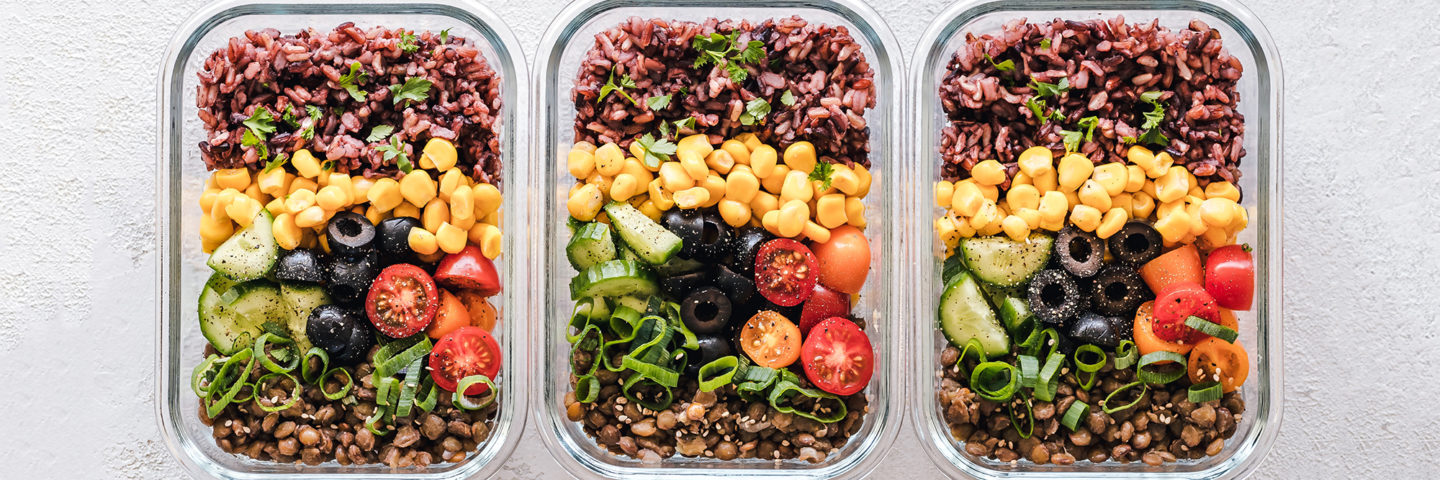
Our Plate Makes A Difference
Eating sustainably has become an increasingly important conversation as our climate continues to change and food waste is at an all-time high. Making a few simple changes to our daily habits can play a key role in moving the needle towards a more sustainable lifestyle.
Choose to Meal Plan
The average American tosses nearly 300 lbs. of food each year. So, why are we throwing our hard-earned money in the trash? Much of this waste comes from over-purchasing and improper storage of produce. Taking the time to meal plan and making a grocery list from that plan can be a core solution to limiting unnecessary purchases, eating healthier, and helping reduce waste. When planning, take inventory of your pantry, freezer, and refrigerator and keep track of perishable items with a list. Once home, organize your fridge with the FIFO (first in first out) method and store produce properly to ensure optimal flavor and freshness. Check out fruitsandveggies.org for a wealth of information on appropriate produce storage.
Focus on Plant-Based
With their low environmental impact, shifting our focus to a more plant-based way of eating can benefit our health and planet. Don’t worry, this doesn’t mean you need to become a vegetarian, but aiming to control your animal protein portion size can help your waistline and reduce greenhouse gas emissions. Choose lean sources of meat, watch your portions, and try adding a meatless day into the meal plan. Also, aim to incorporate more plant-based proteins such as fiber-filled nuts, seeds, and beans, and lastly fill up that plate with a variety of produce!
Shop In-Season Produce
When shopping for your favorite fruits and veggies, choose to purchase in-season. Not only will this help save on your grocery dollars, but it will cut down on environmental concerns of transportation. Also, keep an eye out for ‘ugly produce’ that may be discounted. This may be items that are overly ripe or have a blemish but can still be great additions to recipes or may work well frozen. Lastly, we can cut down on food waste by purchasing produce in a variety of forms. Canned and frozen options are flavorful, last much longer, and are just as nutrient-dense as fresh and should not be overlooked.
Take Time to Prepare
Once we do the work to plan and shop, taking the time to prep is just as important in reducing food waste in our kitchens. Also, having those better-for-you options at the ready encourages us to make the healthier choice when hunger strikes. Try preparing your snacks for the week in reusable containers and cutting up fruits and veggies so they are ready to be eaten.
Sustainable eating is about choosing foods that improve and preserve our environment and our health. What we put on our plate makes a difference and it’s no surprise that sustainability and eating well can work in partnership. While a global shift is critical, making small changes to our daily habits can make a large impact in our own communities.


